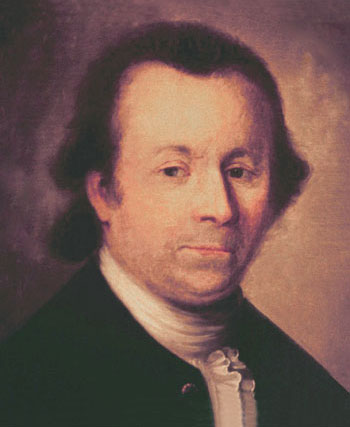Button Gwinnett

Button Gwinnett was born in an English village, Down Hatherly, around 1735. His father was an Anglican vicar. It is believed that his uncle, a merchant in Briston, was responsible for the education he received in trade and finance. By 1759, he had become involved in the export shipping business and developed a fairly substantial trade with the Colonies. There are no remaining records of Guinnett's arrival in the Colonies, but it is certain that he opened a store in Savannah, Georgia in 1765. Not long after, however, he shut down this business and decided to become a planter. He borrowed an extensive amount of money to purchase land off the Georgia coast, but he never managed to succeed financially in this field. Eventually, creditors seized everything, including his land and slaves.
Gwinnett became involved in politics in the late 1760's. Between 1768 and 1769 he served as one of His Majesty's justices of the peace, and he was elected to Savannah's colonial assembly by voters in St. John's Parish in 1769.
Gwinnett joined the patriot cause later than most because of his English connections, but by May of 1776 he was participating in the Continental Congress, and he signed the Declaration of Independence on August 2 of that same year. He was reelected to serve in the Congress that fall, but chose not to attend. He later became involved in the drafting Georgia's first constitution, helping to block plans for a union with South Carolina. He also served as an interim governor for two months in 1777, but failed to get reelected. Unfortunately, he and a certain General Lachlan McIntosh had a severe disagreement of sorts which lead to a dual in which Gwinnett received a fatal wound to the leg. His grave is believed to lie in Colonial Park Cemetery in Savannah.
 >
>